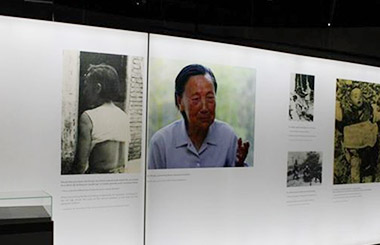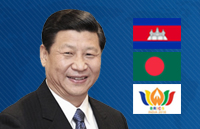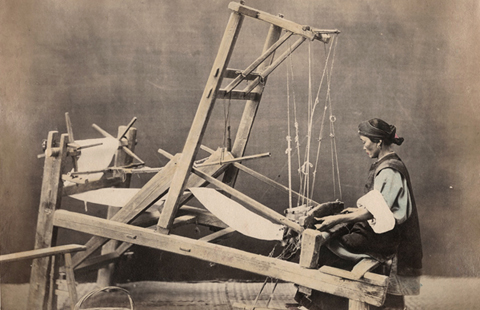ROK hopes for third time lucky on rocket launch
![Engineers and launch coordinators gather near the Korea Space Launch Vehicle-I on the launch pad at the Naro Space Center in Goheung, 350 km south of Seoul, on Monday. South Korea confi rmed it will make another attempt on Wednesday. [KOREA AEROSPACE RESEARCH INSTITUTE VIA AGENCE FRANCE-PRESSE] ROK hopes for third time lucky on rocket launch](../../images/attachement/jpg/site1/20130130/00221917dead1272957507.jpg) |
|
Engineers and launch coordinators gather near the Korea Space Launch Vehicle-I on the launch pad at the Naro Space Center in Goheung, 350 km south of Seoul, on Monday. South Korea confi rmed it will make another attempt on Wednesday. [KOREA AEROSPACE RESEARCH INSTITUTE VIA AGENCE FRANCE-PRESSE] |
The Republic of Korea will make its third and final attempt to send its space rocket into orbit on Wednesday, in an effort to realize a long-held ambition.
Despite a series of difficulties and failures, the ROK has maintained its homegrown rocket program because a successful launch will bring Seoul international recognition, greater self-confidence and economic benefits, according to observers.
Yonhap News Agency said a final launch simulation of the Korea Space Launch Vehicle-1, also known as the Naro, was conducted on Tuesday and there were no apparent problems.
The agency said the rocket is tentatively set to lift off at 4 pm on Wednesday from the Naro Space Center. The exact time of the launch is expected to be disclosed about two hours beforehand.
The ROK tried to launch the Naro in 2009 and 2010, but both attempts ended in failure. Seoul also planned to launch the rocket on Oct 26, and again on Nov 29, but both were put off because of technical problems.
Wednesday's attempt is the third and the last trial under an agreement between the ROK and Russia, whose Khrunichev State Research and Production Space Center manufactured the first stage of the Naro. The ROK lacks the technology.
Despite the various false starts, observers and media said the ROK has never faltered in its aerospace ambition.
Huang Youfu, a professor in Korean studies at Minzu University of China, said a successful launch of the Naro would mean that Seoul gains membership of the global space club — considered a strong symbol of national power by many.
If Seoul succeeds, the ROK will become the 13th country to send a rocket into space from its own soil, he said.
The ROK has sent up about 10 satellites, but all were launched in foreign countries with foreign rockets. ROK media are describing the Naro as the nation's aerospace dream.
Huang said another reason Seoul is so persistent in launching the Naro is concern over the space ambitions of the Democratic People's Republic of Korea. "Seoul judges that its technology is lagging behind Pyongyang's, a fact that it cannot accept," Huang said.
Hong Kong-based Phoenix TV said the ROK cannot develop its own ballistic missile with a range of more than 800 km due to limits imposed by the United States, so it hopes to improve its own missile technology through development of the Naro.
Seoul is attempting to improve national confidence through the program, because most ROK citizens support the launch, Phoenix added.
The New York Times reported that the ROK, seeing its neighbors developing their own space projects, is eager to have its own rocket, as China has its Long March rocket series, Japan the H2 rocket system, and Russia its Proton rockets.
According to a survey of 1,000 ROK adults by the research institution Korea Research, 80.4 percent of respondents hope Seoul can continue the country's research and development of space vehicles, regardless of whether the latest launch attempt succeeds.
Huang said a successful launch will bring Seoul economic benefits too, as the aerospace industry will be boosted by the Naro project and more jobs will be created.
Wang Junsheng, a researcher in East Asia studies with the Chinese Academy of Social Sciences, said a successful launch will boost the ROK's scientific research, including meteorology and physics. The nation can also develop civilian use of space technology, which can strengthen its economy, he said.
After the failures and postponements, this time the ROK may have a greater chance of success, Huang said, but he added that it should be less dependent on Russian technology, and develop its own.
Besides the Naro space program, the ROK is looking to develop an indigenous rocket with a 10-ton thrust engine by 2016, followed by a 75-ton thrust engine in 2018, Yonhap reported.
Contact the writers at [email protected] and [email protected]

























